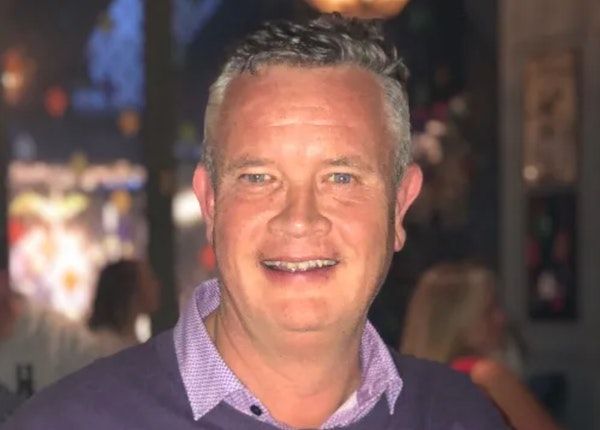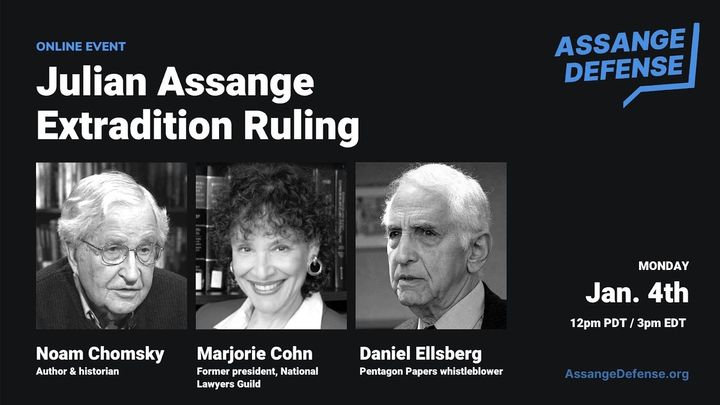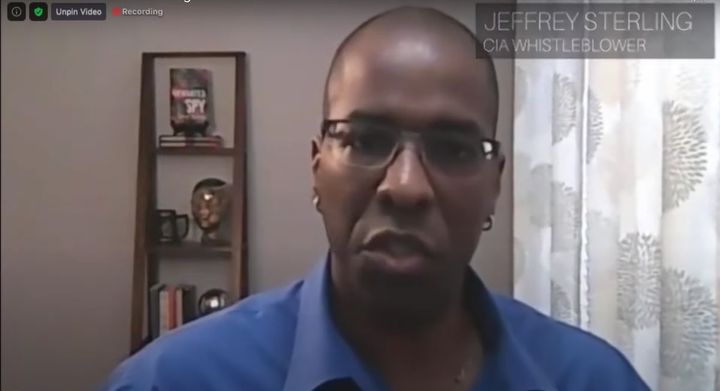Navigating the Media Landscape: Interview With Shadowproof's Founders
Shadowproof Member Newsletter - 8/3
Keeping The Issues Alive - August 3
Shadowproof celebrated its fourth birthday on August 2. For this week's member newsletter, founders Kevin Gosztola and Brian Sonenstein talk about what it has been like to build an independent media organization and how they’ve managed to navigate the media landscape.
(NOTE: We sent this as a preview to everyone on our list who regularly receives the weekly newsletter. This newsletter is funded entirely by readers like you. If you like what you read, please consider subscribing to our member newsletter for $5/month or more.)
What are you most proud Shadowproof has accomplished?
KEVIN: I am proud of the reputation we have earned from our readers. Brian has stayed focused on prisons. I remain focused on Chelsea Manning, Julian Assange, WikiLeaks, whistleblowers, and government secrecy. We prioritize quality over quantity. We take our time to complete research and flesh out analysis. It is not important to be the first one to comment or cover something because we have developed a reputation, where people will read coverage of certain topics regardless of whether it was reported somewhere already.
BRIAN: Man, there is so much to be proud of in just four years! Sending Rania Khalek to cover the 2016 Democratic National Convention, Kevin’s coverage of whistleblowers Reality Winner and Chelsea Manning, our coverage of the prison strikes, and a lot more.
But what I am most proud of is the reputation we’ve built with freelance journalists, who I admire very much. It feels really good when a journalist tells us they came to us specifically to tell a particular story or when they tell us they appreciate the way we edit their work. At the same time, I’m also proud that we’ve been able to build a loyal base of small donors to generate enough funds to pay journalists a fair wage for their work and not exploit them like so many other outlets do. The trust we have cultivated from readers and writers in four years took a lot of work and is a major source of pride for me.
In a world of journalism, what gives you hope, even as media pundits constantly reject or keep their distance from movements for transformative change?
BRIAN: There are two things that give me hope. The first is the persistence of very talented reporters in a media economy that seems designed to drive them away from doing good work. So many journalists take risks and make sacrifices to tell these stories when that shouldn’t be required. In that sense, I’m inspired by how many don’t give up.
I’m also hopeful because many reporters we work with buck establishment media culture and recognize the important role they play in social movements as communicators. I’m hopeful because they’re taking risks to eschew this absurd bright line that establishment media tries to draw between journalism and advocacy, as though they’re not advocating for the status quo themselves. It’s ridiculous and pretentious. Good journalism espouses good values.
There are still journalists doing the real work, communicating struggle and encouraging radical imagination that flourishes in movement spaces, and that gives me enormous hope.
KEVIN: I am hopeful because there are an increasing number of projects out there that seek to fill voids left by the collapse of the newspaper industry and billionaires, who have leeched off many organizations then shut them down. For example, Inside Climate News is an organization developing journalism in communities to ensure the local impacts of climate disruption are covered.
We did some work with the Lucy Parsons Lab, which is a collaborative project between data scientists, transparency activists, artists, and technologists in Chicago and the San Francisco Bay Area. They pry documents from governments on the use of surveillance by local police in and around these cities.
Though there is tremendous secrecy around our national security apparatus, we have a decent idea of what happens with our federal government. What we are losing is the sense of understanding what is at stake at City Hall and in our state legislatures or even in our county courtrooms. The projects focused on saving the low-income housing project from demolition so a luxury apartment building can be built—that’s the type of work that gives me hope.
So many outlets are covering the news and putting out stories. The news cycle is accelerating and intensifying daily.
How do you decide what to cover?
KEVIN: We stay focused. We accept that we cannot cover everything. We cannot even tweet or write comments on Facebook about everything. Recognizing limits, particularly at a smaller media outlet, we focus on what we have developed the authority to cover. There are only a few areas where people look to us as an organization that should tell a particular story or analyze certain types of cases.
It is also possible to look at the news cycle and step back and say, how do we cover this horrendous development but do so in a way that goes beyond the superficial manner in which most of the press is tackling the subject? That slows everything down and allows us to produce pieces that will be read and shared months later because they still have relevance.
BRIAN: I think our emphasis on quality over quantity has really made the difference and freed us from chasing the news cycle. Since we’re not obsessed with the traditional metrics of page views, ad sales, etc., we’re free to decide what to cover based on our judgment of what’s not getting the attention it deserves.
This strategy has worked well and allows us to stand out from the crowd rather than try to compete with a billion outlets, most of which have vastly more resources. Whatever is leading the news cycle that day, our readers most likely already know that news. They’re not coming to Shadowproof to learn that news happened. They’re coming for stories on the issues they care about that include details, which can help them become better informed.
What is the hardest part about navigating the current media landscape?
BRIAN: For the last 10 or so years that I’ve worked in independent media, I think the hardest part has always been convincing people that journalism is an essential public good that is worthy of their financial support.
We have intentionally kept our reporting accessible to everyone regardless of their ability to contribute money and not use paywalls as a means to coerce funding. It’s been very hard and perhaps we’ve left a lot of money on the table that way, but I think it is proving to be worth it in the long run.
I wish more independent news outlets and journalists spent time making this case instead of just relying on coerced funding models. As long as we’re journalists working within capitalism, I think we need to work together to convince the public that media funding and universal access is too important to leave to corporate sponsors and only those who have income to get past each paywall.
KEVIN: Breaking through when you are a new organization is tremendously difficult. We benefited from the fact that we spun off from Firedoglake, but we still lost a bunch of supporters and donors and had to rebuild by developing our own distinct reputation. The individual followings we had each helped to make it easier. Nevertheless, it took three years to get to the point where we had funds to pay journalists.
In fact, we hired a few people to be staff in our first year, but we actually could not afford it over the long term. We were dipping into our own personal bank accounts regularly. So it was hard to come to terms with the reality that we had to wait, let our own individual work generate interest in Shadowproof, and then we could come back to our more ambitious plans.
Other than donate money, what can members do that would help take Shadowproof to the next level?
KEVIN: Overall, I believe we need to do more to encourage participation from our members, as well as readers. We do not really know each individual member, but I imagine they can tell us a lot about what groups in their community are doing to fight for reforms and challenge injustice. Shadowproof should have clear ways for exchanging ideas with members and our most loyal readers. They may be able to donate some time tracking or reporting on a trend in social media (like following a hashtag or reporting on reactions to a significant development).
It is on us to create avenues for participation, but in the next year or two, I think what members can do is join with us to take advantage of the community we have built. Because there is a lot of potential to supplement what we already do fairly well.
BRIAN: Telling friends, family, and co-workers about Shadowproof is one of the best things you can do to help us if you can’t make a donation. That word-of-mouth promotion is so valuable because those people trust you, and it multiplies quickly.
People are exhausted by establishment media bullshit, but we can’t let them become disenchanted with journalism altogether. Letting people know that you read us, and why you like reading us, helps break through that malaise. A lot of times those readers eventually become donors and members, too. It’s all because of trust.




Comments ()